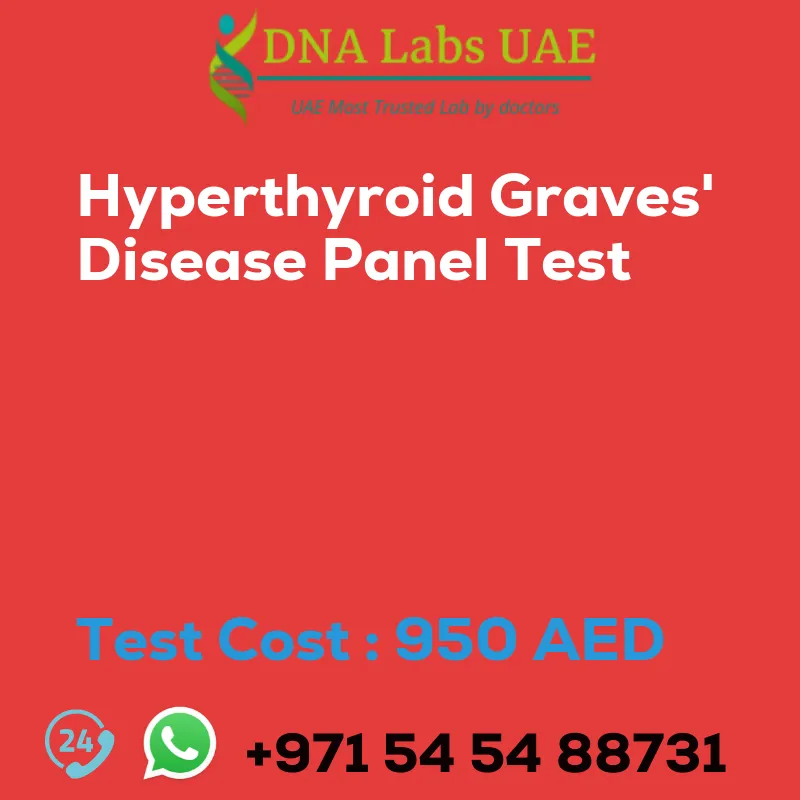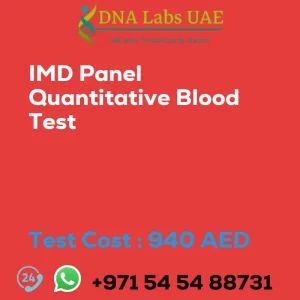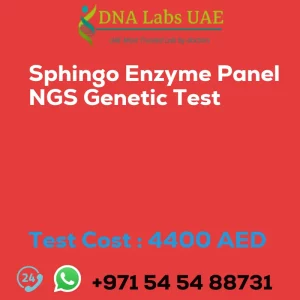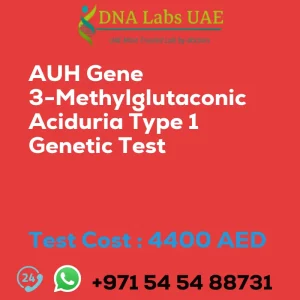HYPERTHYROID GRAVES’ DISEASE PANEL Test
Test Cost: AED 950.0
Symptoms Diagnosis:
The Hyperthyroid Graves’ Disease Panel test is a blood test that is used to evaluate and diagnose hyperthyroidism and Graves’ disease. It measures the levels of various hormones and antibodies in the blood that are associated with these conditions.
Test Components:
- Free T4
- TSH
- Total T3
- TSH Receptor Antibody
Sample Condition: 4 mL (3 mL min.) serum from 1 SST. Ship refrigerated or frozen.
Report Delivery: Sample Daily by 4 pm; Report Same day
Method: CLIA, ECLIA
Test Type: Disorders of Thyroid
Doctor: Endocrinologist, Physician
Test Department:
Pre Test Information: No special preparation required
Test Details:
The Hyperthyroid/Graves’ Disease Panel test is a blood test that is used to evaluate and diagnose hyperthyroidism and Graves’ disease. It measures the levels of various hormones and antibodies in the blood that are associated with these conditions. The panel typically includes the following tests:
- Thyroid-stimulating hormone (TSH): This hormone is produced by the pituitary gland and regulates the production of thyroid hormones. In hyperthyroidism, TSH levels are usually low.
- Free thyroxine (FT4): This test measures the level of the active form of thyroid hormone in the blood. Elevated FT4 levels are often seen in hyperthyroidism.
- Free triiodothyronine (FT3): This test measures the level of another active form of thyroid hormone. Elevated FT3 levels are also seen in hyperthyroidism.
- Thyroid peroxidase antibody (TPOAb): This test detects the presence of antibodies that target the thyroid gland. High levels of TPOAb are often found in Graves’ disease.
- Thyroid-stimulating immunoglobulin (TSI): This test measures the level of antibodies that mimic the action of TSH, leading to excessive thyroid hormone production. Elevated TSI levels are indicative of Graves’ disease.
By analyzing the results of these tests, healthcare providers can assess thyroid function, determine the cause of hyperthyroidism, and differentiate between Graves’ disease and other causes of hyperthyroidism. It is important to note that this panel is just one tool in the diagnostic process, and additional tests and evaluations may be necessary to confirm a diagnosis and develop an appropriate treatment plan. It is always best to consult with a healthcare professional for a comprehensive evaluation and interpretation of test results.
| Test Name | HYPERTHYROID GRAVES’ DISEASE PANEL Test |
|---|---|
| Components | *Free T4*TSH*Total T3*TSH Receptor Antibody |
| Price | 950.0 AED |
| Sample Condition | 4 mL ( 3 mL min.) serum from 1 SST. Ship refrigerated or frozen. |
| Report Delivery | Sample Daily by 4 pm; Report Same day |
| Method | CLIA, ECLIA |
| Test type | Disorders of Thyroid |
| Doctor | Endocrinologist, Physician |
| Test Department: | |
| Pre Test Information | No special preparation required |
| Test Details |
The Hyperthyroid/Graves’ Disease Panel test is a blood test that is used to evaluate and diagnose hyperthyroidism and Graves’ disease. It measures the levels of various hormones and antibodies in the blood that are associated with these conditions. The panel typically includes the following tests: 1. Thyroid-stimulating hormone (TSH): This hormone is produced by the pituitary gland and regulates the production of thyroid hormones. In hyperthyroidism, TSH levels are usually low. 2. Free thyroxine (FT4): This test measures the level of the active form of thyroid hormone in the blood. Elevated FT4 levels are often seen in hyperthyroidism. 3. Free triiodothyronine (FT3): This test measures the level of another active form of thyroid hormone. Elevated FT3 levels are also seen in hyperthyroidism. 4. Thyroid peroxidase antibody (TPOAb): This test detects the presence of antibodies that target the thyroid gland. High levels of TPOAb are often found in Graves’ disease. 5. Thyroid-stimulating immunoglobulin (TSI): This test measures the level of antibodies that mimic the action of TSH, leading to excessive thyroid hormone production. Elevated TSI levels are indicative of Graves’ disease. By analyzing the results of these tests, healthcare providers can assess thyroid function, determine the cause of hyperthyroidism, and differentiate between Graves’ disease and other causes of hyperthyroidism. It is important to note that this panel is just one tool in the diagnostic process, and additional tests and evaluations may be necessary to confirm a diagnosis and develop an appropriate treatment plan. It is always best to consult with a healthcare professional for a comprehensive evaluation and interpretation of test results. |








